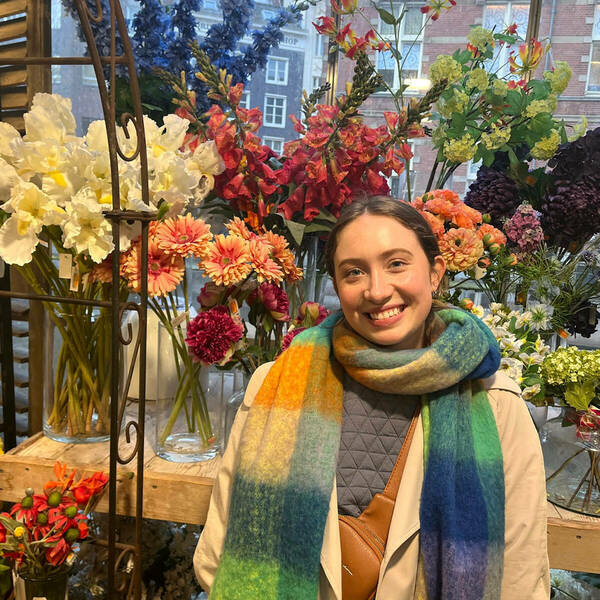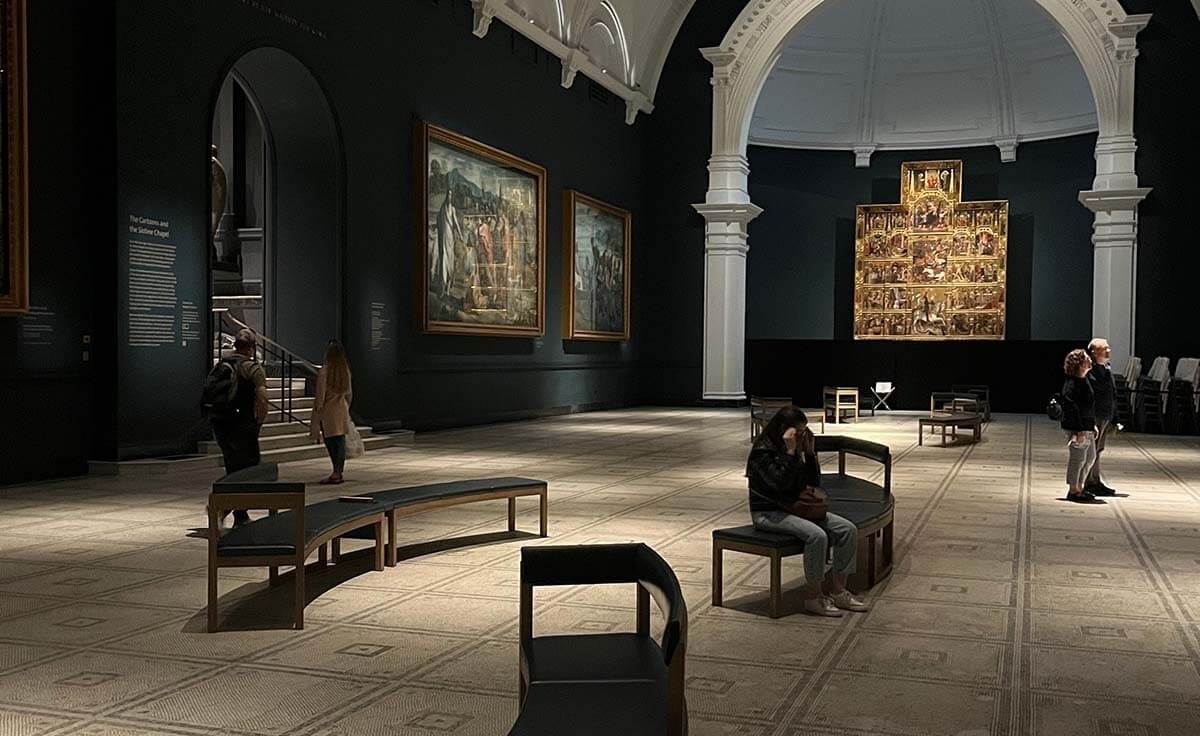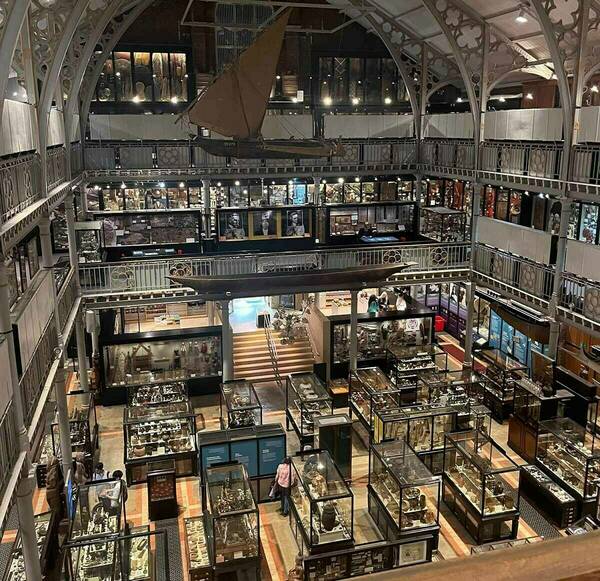
Elizabeth Bernath ’24, a double major in political science and history with a minor in Portuguese language and culture, traveled to the United Kingdom during the summer 2023 break to conduct research for her senior thesis, funded by the Nanovic Institute for European Studies. Her project also received the competitive Barrett Prize for its thoughtfulness and research potential.
Museums and colonialism are two enduring features of the history of the United Kingdom. From the British Museum to the National Gallery, the Natural History Museum, and beyond, England alone holds hundreds of millions of artifacts from numerous continents, time periods, and cultures. Many of the collections in these museums have a direct connection to the history of the British Empire and its imperialistic mission. Early collections of “exotic” art and artifacts were first displayed in “Cabinets of Curiosities,” or wunderkammers, among Western European royalty and elites throughout the 16th and 17th centuries. However, as the British Empire expanded, so did its collections of foreign, and oftentimes stolen, artifacts and relics. In England, Victorian-era curators and political figures would eventually turn these private collections into public exhibits, creating cultural institutions such as the Victoria & Albert Museum (V&A) in London and the Pitt Rivers Museum in Oxford.

As a History major with a geographic concentration in Europe, I have long been fascinated by the nature of museums as well as the history of British imperialism. Eventually, I started to work on ways to concentrate my interests into a more substantial senior thesis. Furthermore, I realized that on-site research through museum archives and library materials would greatly complement my writing because of the subject that I chose. After countless meetings and email correspondences with my advisor, Professor Paul Ocobock, I was able to narrow down a potential topic and plan of action to research in England for two weeks at the end of May.

In preparation for my senior thesis project, I consulted archives in two museums, the Victoria & Albert Museum and the Pitt Rivers Museum. Both were constructed for the public eye during the Victorian period, and both have links to wunderkammers and private collections in their foundations. Throughout the two weeks, I was primarily working in the National Art Library of the V&A, where I spent several hours a day looking through archives and files related to the founding of the museum, early acquisitions, private collection donations, and much more. I was also able to take a short trip to Oxford to work in the Balfour Library at the Pitt Rivers Museum, looking at similar files on the establishment of the museum and its connection to the British Empire. While the brunt of my research involved myself and old pieces of paper, I was also able to interact with many of the archivists and librarians at both museums who used their expertise to collect the documents that would best complement my work.
This experience in England profoundly enriched both my academic and personal goals. Academically, I was able to examine and catalog hundreds of pages of files that will contribute to my honors history thesis. I hope that through my work, I will be able to expand upon existing historical research by analyzing how these cabinets and their influence on the establishment of the V&A and Pitt Rivers Museum provided 19th-century Britons a way to understand their ever-expanding world and uphold the country’s imperial mission. I was also able to achieve several personal goals, such as solo travel and conducting proper research. While traveling to a new country alone was daunting at first, being able to navigate, live in, and thrive in a vibrant city taught me more about what I was capable of both as a student and as a person. Furthermore, being able to conduct research in world-renowned museums was an incredible experience I will treasure for the rest of my academic and professional career.